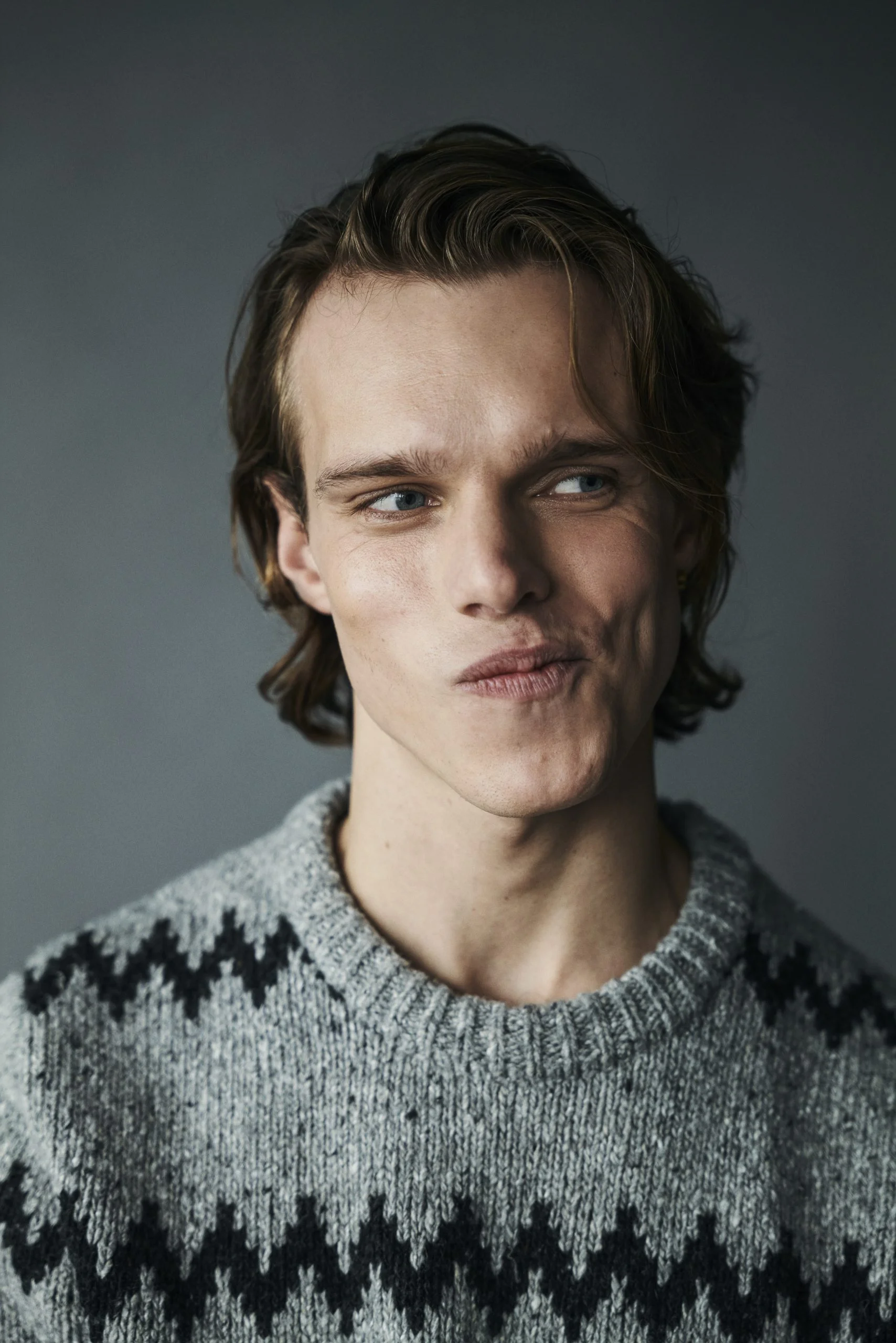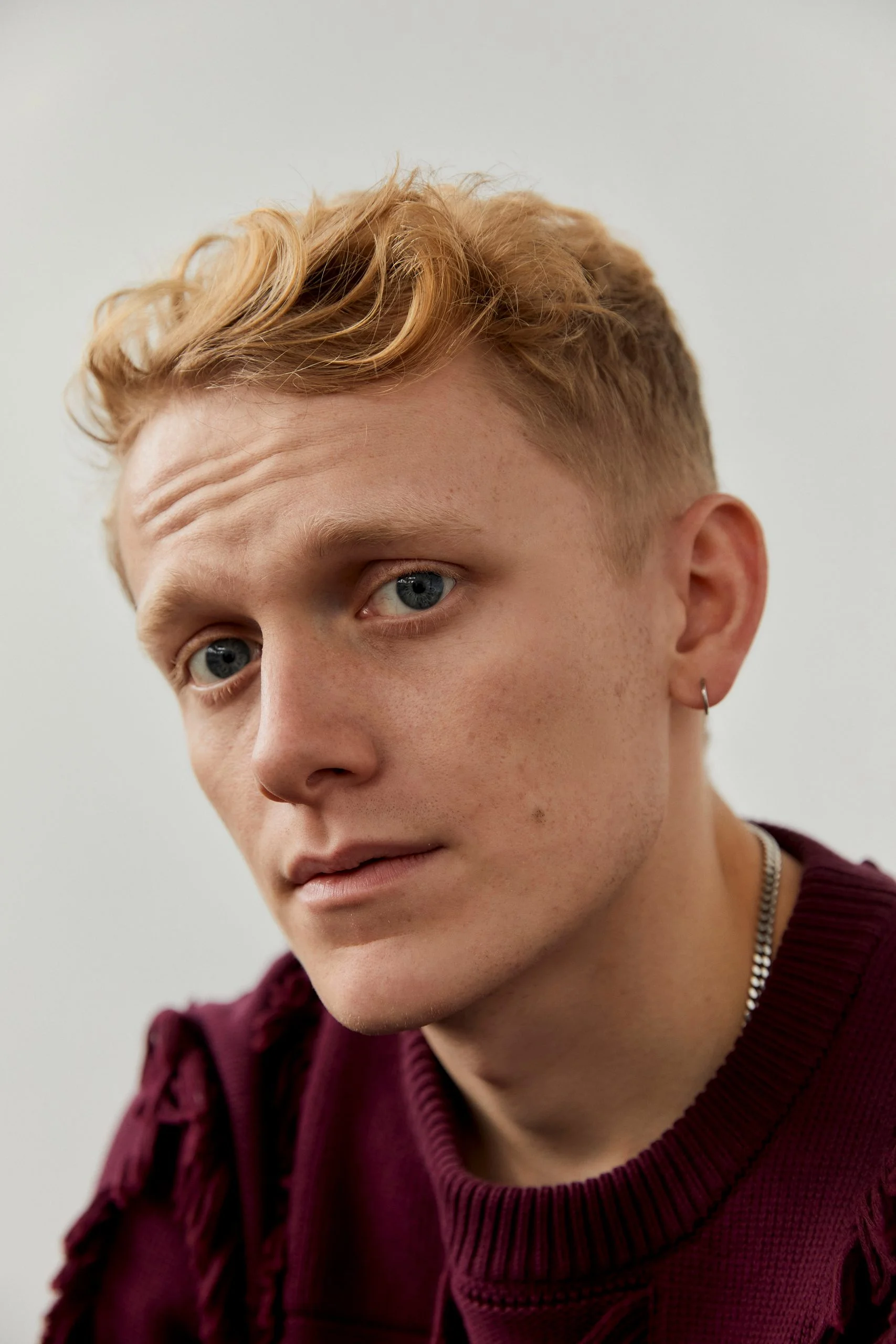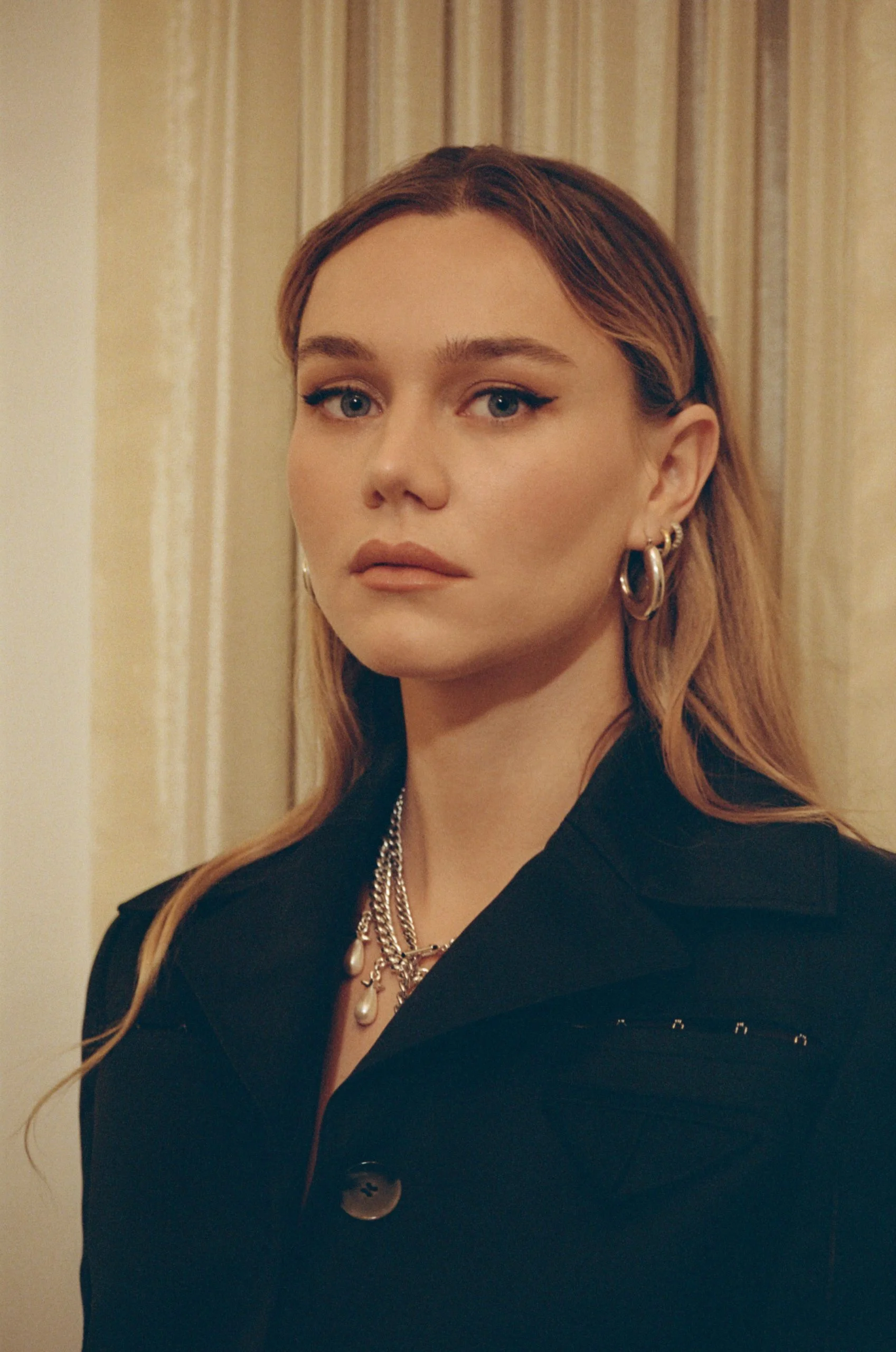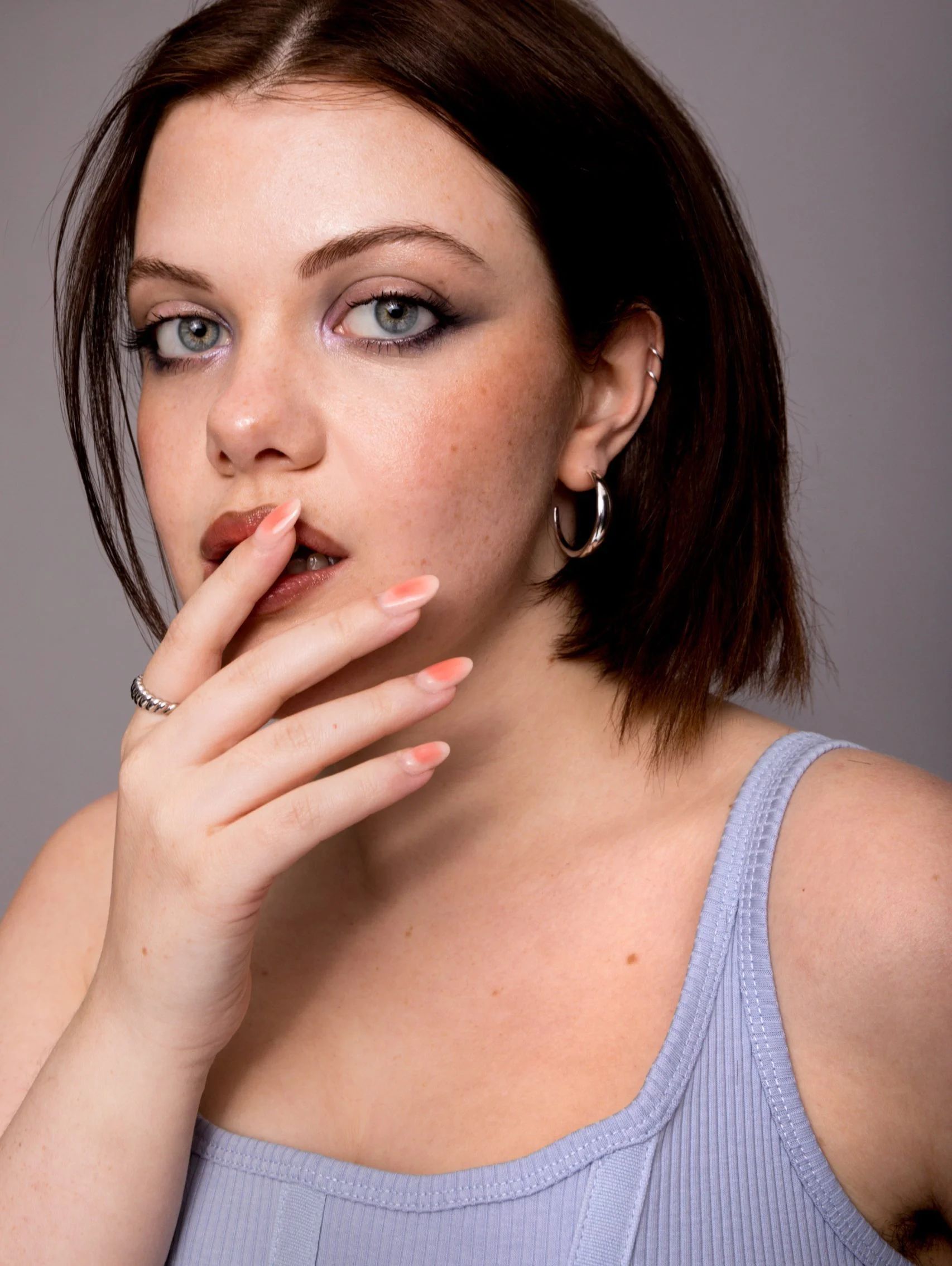
Georgie Henley
With Partygate, actress Georgie Henley shows audiences a side to her acting prowess that she’s never shown before — all while taking aim at the infamous political scandal in the UK.
Life lately for Georgie Henley has been about shedding layers. It’s been just over a decade since we met for her first 1883 story and a lot has changed for her since. Although many were first introduced to the bright-eyed and bushy-tailed Henley as a kid, her latest role is a far cry from what people have seen her in so far. With Partygate, Henley plays Grace Greenwood, a fictional No10 special adviser from the north. Although she relished in the idea of working for Boris Johnson and No10, viewers watch as her disillusion rises and her faith in the people running the country dwindles as they preach to the public about staying home while they attend party after party.
For a multitude of reasons, it’s a project that is close to Henley’s heart. When she was 18 and in her sixth week of university, she contracted necrotising fasciitis, a rare infection that could’ve killed her. To save her left hand, she received an invasive surgery and reconstructive surgery that resulted in skin grafts and scars. It was a period of her life where she was forced to grapple with working in an industry that values such a (ridiculous) importance on perfection. Now, at 28, she’s opened up about her experience, hearing from other people that have gone through similar things. It’s coloured Henley’s experience of coming-of-age, but it has emboldened her to continue selecting projects that light a fire in her. And for someone who followed the rules and saw firsthand the work the NHS do as she underwent surgeries and her own recovery journey, it’s exactly why something like Partygate is such important viewing and a story that needs to be told on-screen. While many were giving up time with their loved ones and as healthcare workers worked around the clock to save those struggling, gatherings of government and Conservative Party staff were frequently happening throughout the pandemic despite that same government prohibiting them.
Over a latte and juice, Georgie Henley sits down with 1883 Magazine’s Kelsey Barnes to chat about what her physical and mental healing journey has been like, why Partygate might just be the most important thing UK viewers watch this year, writing poetry and working on her own projects, and more.
A year ago you talked about feeling finally free after opening up about a period of time that was really difficult to navigate. Has it been easier for you to feel even freer over the last year or so?
I feel like I’m still in that stage where I’m doing a lot of firsts still. It sounds so small, but even during the shoot with you guys [1883], that was one of the first times that I’ve not been thinking, “How can i hide this?” A lot of it was my own projection because I think in the early stages, I did worry about how it would affect certain opportunities. It also became very clear that I just wasn’t ready in my healing process. I needed to be able to talk about it without bursting into tears. it took a really long time for it to be something that I could feel really good about, and I really do feel good about it now. That has taken a really long time. I think there was a few times when I felt maybe that it was time to talk about it, but it never was the right time. I’m a bit of a control freak anyway — my nightmare was that I would be unprepared and someone would catch me off-guard and get a photo and then it wouldn’t be in my control. I’m gonna be unprepared in some way. And someone’s going to catch, catch me off guard, you’ll get a picture or something.
Doing it via social media at least made it on your terms.
It [social media] is a weird but amazing thing. I shot with this amazing photographer Alex Cameron and that was just such an incredible day. You kind of take the power away a little bit when you talk about it. I think I had my own worries about what people would say and people have just been amazing — the level of generosity and love from complete strangers has meant a lot. A lot of people commented on the post and said they were on their own journey with scars because the way we talk about them, or show them in films as villains with scarred faces, can make people feel pretty shitty about themselves. I remember six months after going through it, I was Googling ‘famous people with scars’ and there were not a lot of people that I could find.
When you’re a child actor, people almost expect you to fail. For a really long time, I saw this as a way of failing. It took me a long time to unlearn that and know that it has nothing to do with me, really. I do feel more free. I don’t think I’d realized how much I thought about it.
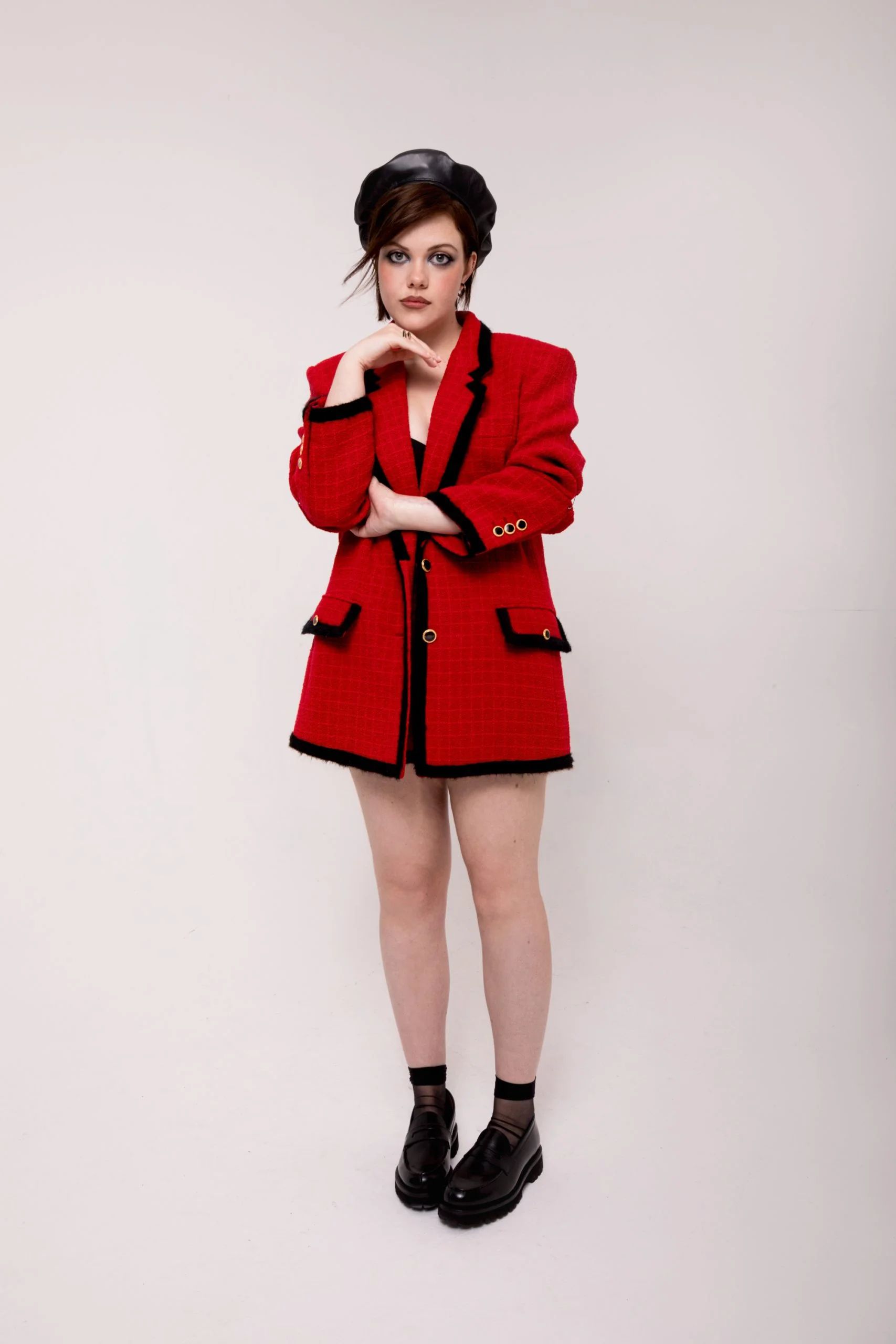
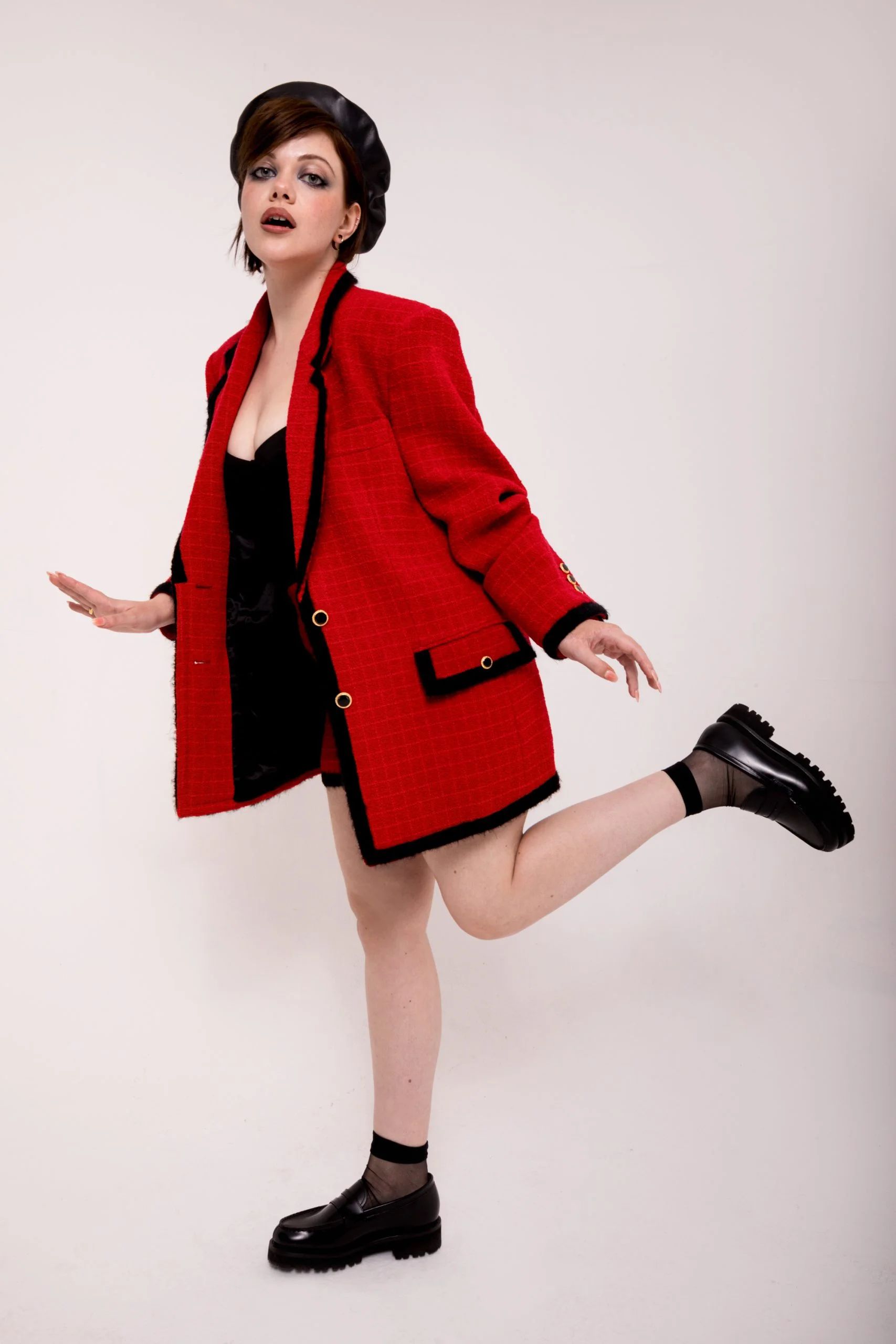
On the topic of freedom, you wrote a really beautiful piece for Backstage where you talk about your own inner monologue while auditioning — comparing yourself to them to the point where it can throw you off. What was it like writing that and working on your own impostor syndrome?
It’s really funny because they asked me to write something about auditioning and I’m so bad at it! I didn’t know what I could really say, so I was just kind of thinking about things when I came out of uni. Obviously, at the time, it was really hard and the reason why I didn’t work was because my confidence was being impacted by my inner monologue and all the stuff I was dealing with. The best thing I could tell people is just give themselves a break. There are such rigorous standards that we hold ourselves to. I really enjoyed writing that piece.
You write poetry, too. Is that something that came about during the pandemic?
I basically had been writing for a while but, again, my fear of failure made me never think to submit something. The pandemic made me realize that I don’t want to have any regrets. What’s the worst that can happen? I started submitting which was fine because as an actor you are rejected all the time [laughs]. I published my first pamphlet at the end of last year. It was my first collection and a month after that I talked about my scars. I just felt like I was shedding all these layers. People have been so receptive to that side of me because when you’re younger people do tend to put you in a box. It was cool for me to take a big swing at something else.
Now I have this little book that I just completely adore and I’m so proud of. It’s one of those things where if I never published anything again, I’m really happy with that. The particular publisher that I published it with does such amazing work in terms of publishing and elevating queer voices and I’m only a very small part of that, but it meant so much.
Touching on community and finding one, when I was reading your chat with The Times you discuss how your character in Partygate was a bit of an outsider and that was how to related to her. You mention not finding your people until your 20s. What was that like?
I didn’t feel like I ever had a group of people. I think a lot of people feel that. It takes time, but I was just impatient. There was a bit of self-loathing where there was something inside of me that was like, “I really think I’m a nice person. I feel like I’m warm and I really want to be generous to people.” I just wasn’t having that back in the same way. Uni was great because I definitely met a lot of people who I felt understood. One of the amazing things about my industry is that you do meet new people all the time. I’ve been really lucky that pretty much all the jobs I’ve done have been with lovely people. In the last four years, I’ve had people come into my life who feel like my soulmate. When you get older, you kind of assume that you’re going to have less of those connections. I think I genuinely feel like my confidence in myself now is has come so much from having beautiful friendships that are just based on love and generosity. Because I haven’t had it in the past, I’m so grateful for it.
It’s like a little plant that you tend to.
Yeah, it’s an amazing thing. I think the pandemic made everyone assess a lot of things, like their relationships.
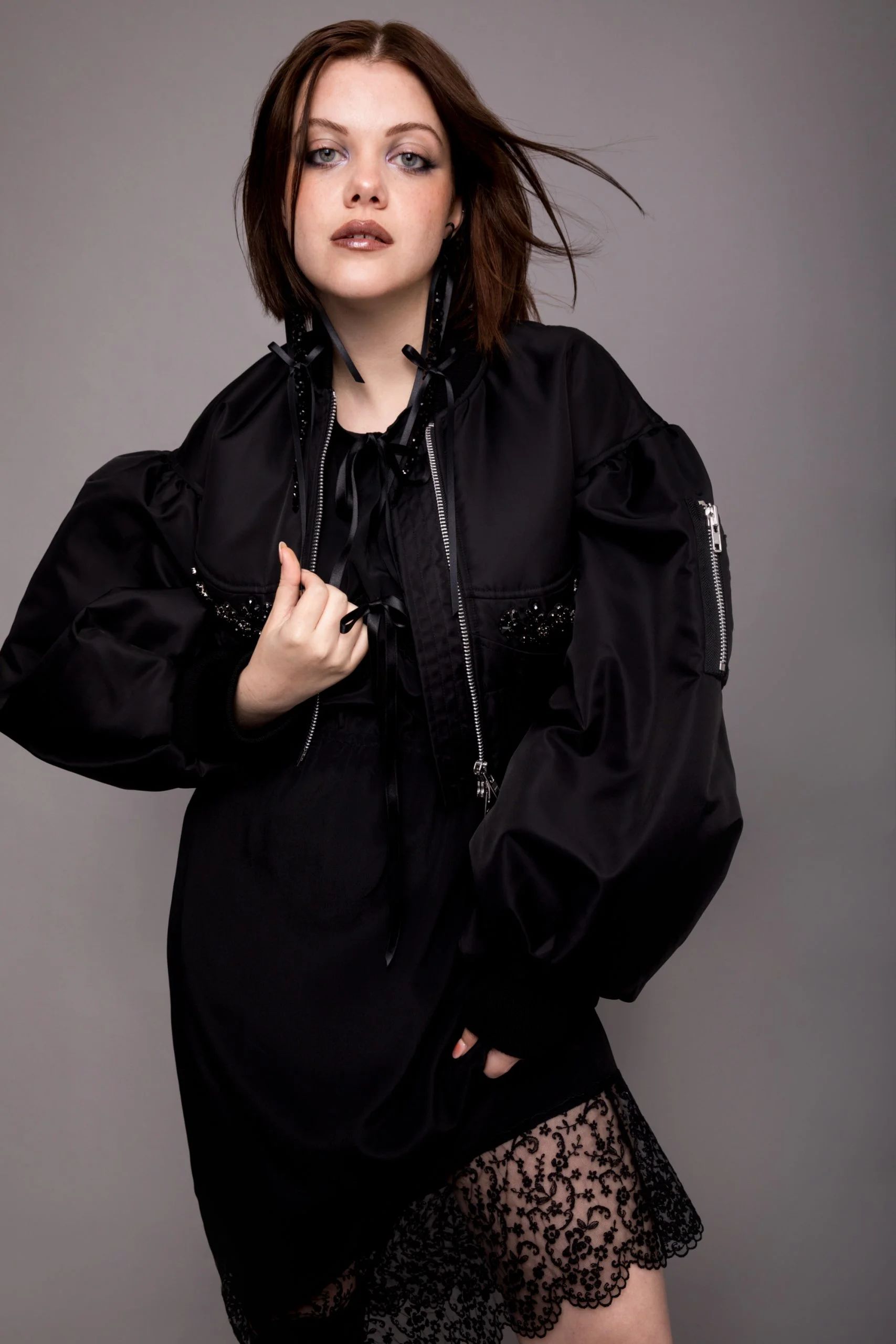
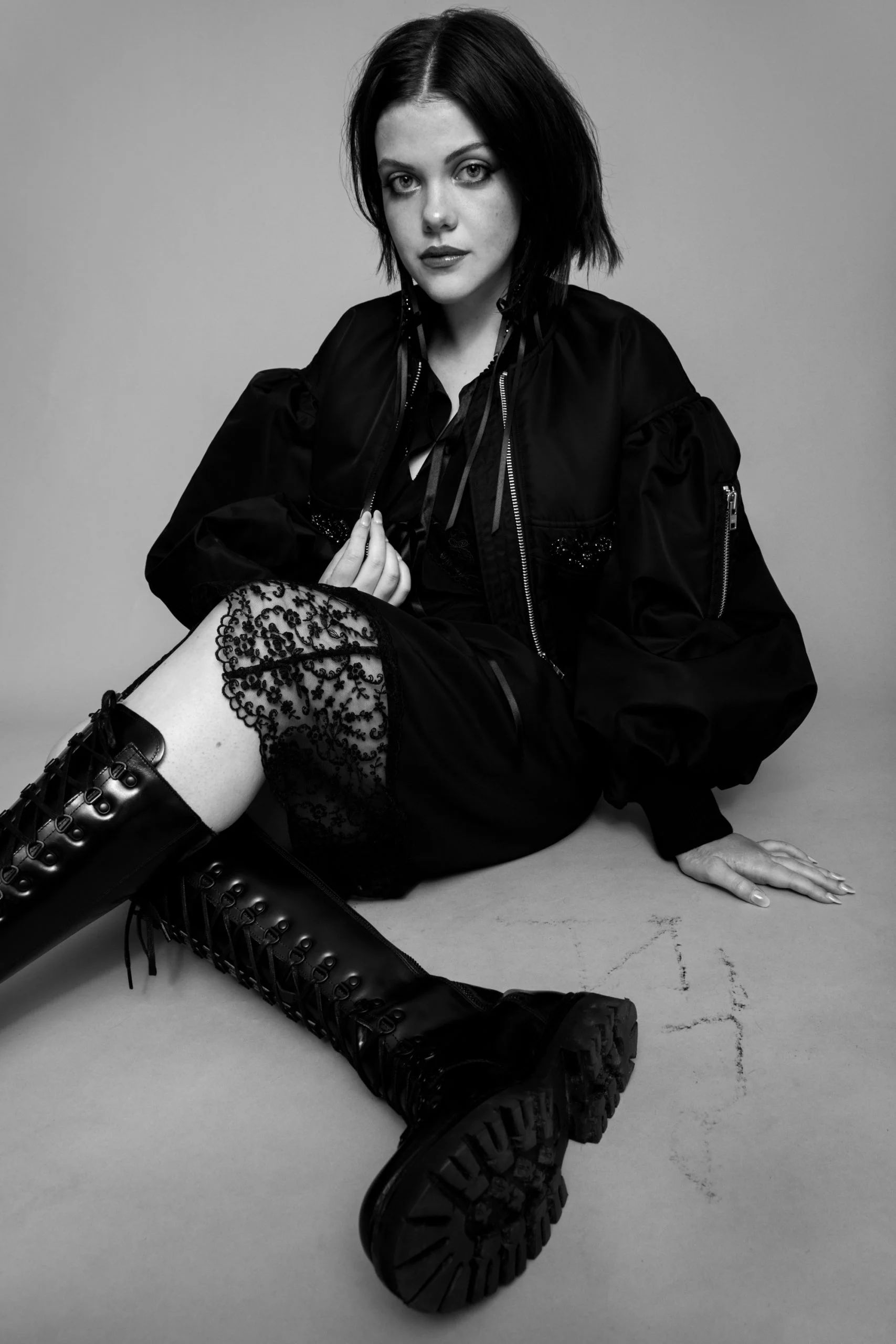
You lived alone during the pandemic, right?
[Nods] It just all happened too quickly.
Your family is all in Yorkshire?
Yes! My parents are in Yorkshire. My sisters are in London, but they’re on the outside of London. I was so worried about what it was and we didn’t have a lot of information, so I just thought to batten down the hatches.
This brings us to Partygate. As someone that didn’t live in the country —
I’m fascinated to hear your perception of it because of that!
Yeah, I only saw the news from BBC. I was speaking to my partner about it yesterday who is British and he was telling me what it was really like living through it and hearing the news [of Partygate]. The extent to which these people were partying, it was ridiculous. They were having parties for whatever occasion they could think of.
And those are just the ones that are confirmed and that we were able to legally depict. There may have been more. The biggest thing people have said to me is that they thought a few things that went on which isn’t very good, but it’s what you said — it’s the audacity of it. It’s a very interesting piece structurally because it’s almost like a collage — it takes all these different elements of a documentary.
I was going to ask — I don’t think you’ve filmed anything like this before.
No, especially not done like that. I want to be doing new stuff all the time so it was great. I had done a lot of research and I almost had to pretend we weren’t doing something based on real events because it was kind of surreal that it actually happened. I knew that it meant so much to other people and real people who have been through hard times [because of the pandemic] and the stakes were almost too high.
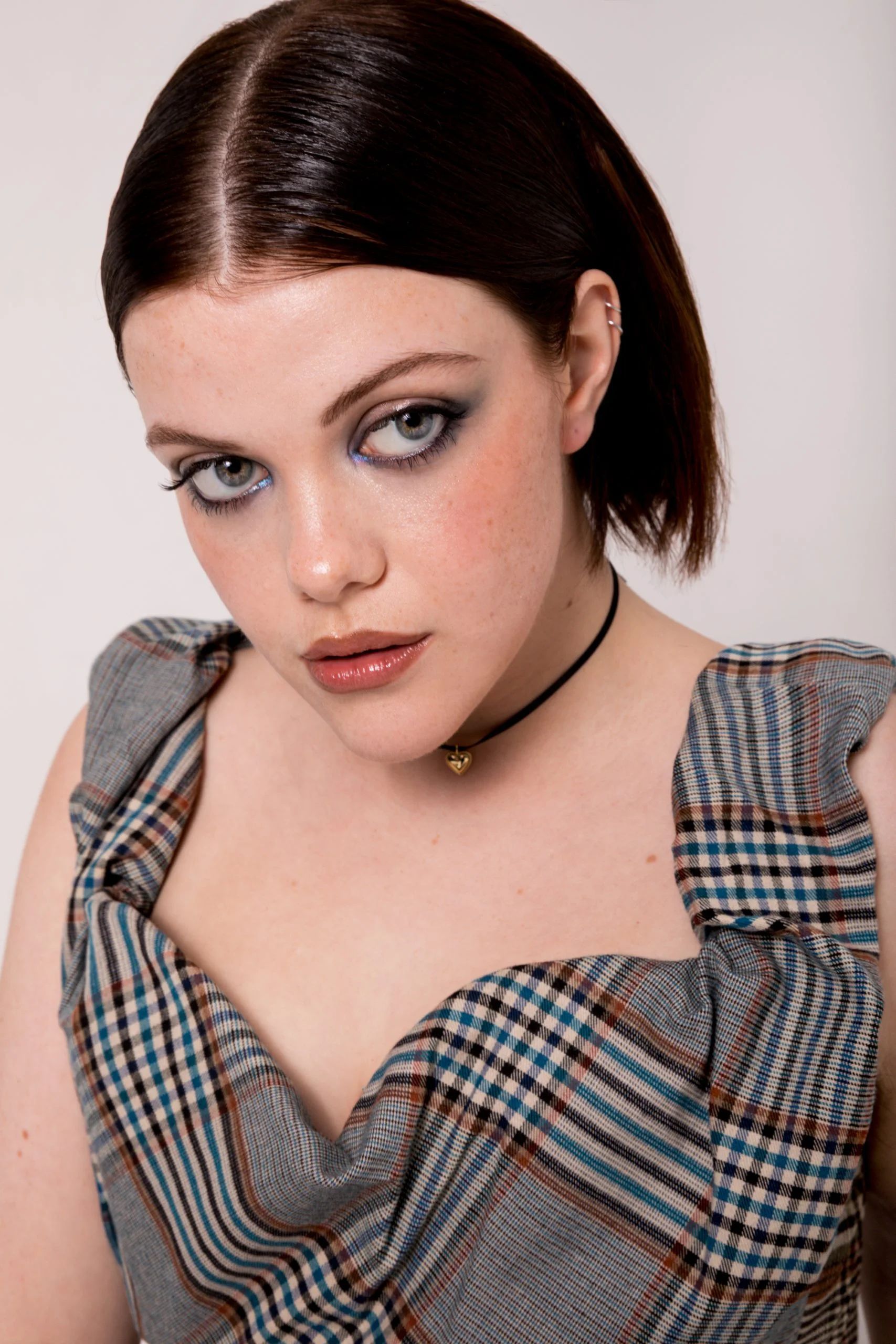
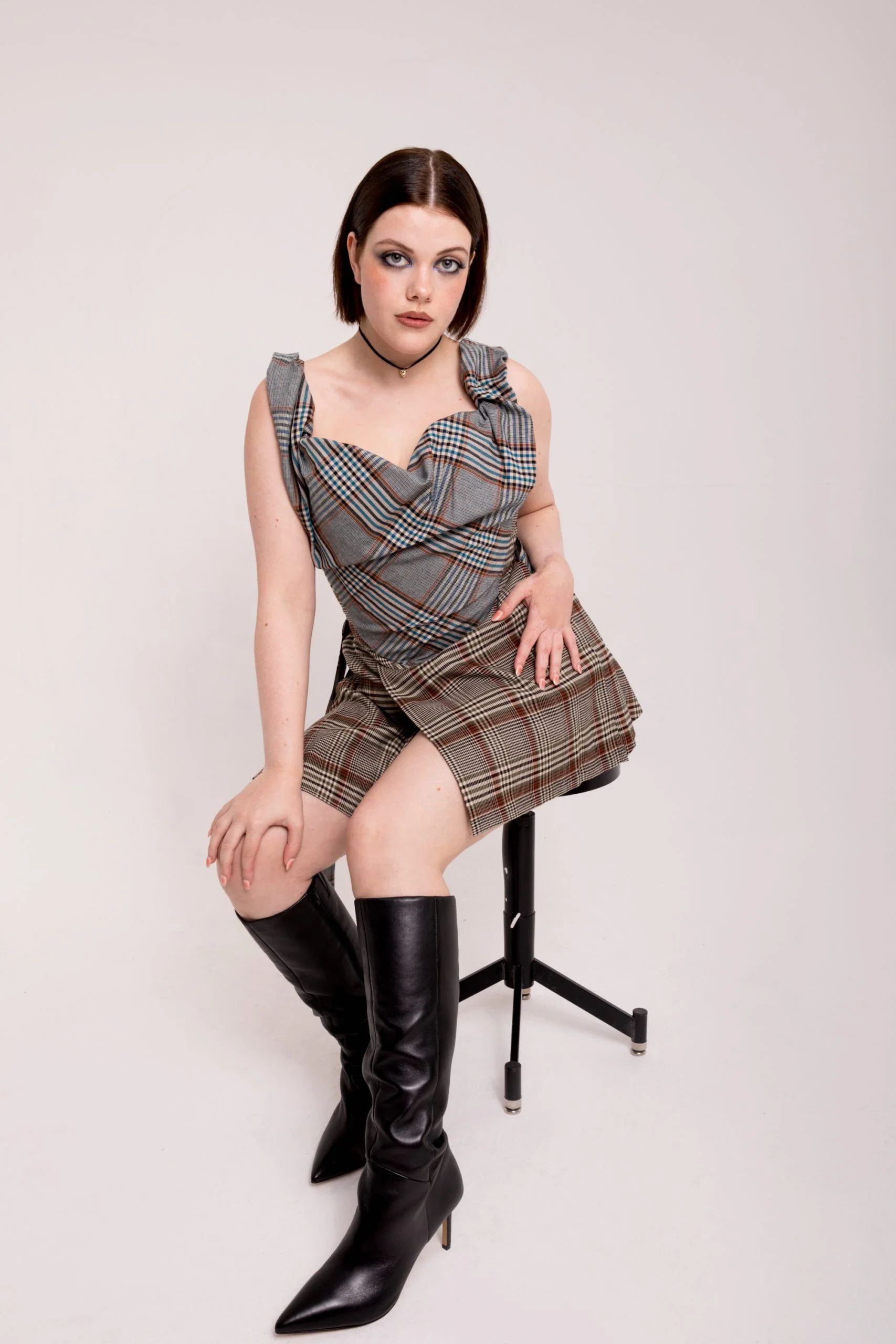
So when you think back to your mindset at this time, did you almost have to detach from it?
You do because there were some scenes that might seem small — like when they are getting all the wine from the fridge — but they made me feel nauseous after. I remember going through the motions: reading the script, acting it out, and realizing it actually happened. There’s a level of premeditation that is so chilling. I really am fascinated to talk to someone about it who didn’t really know. It’s as if these parties were happening in the White House.
I know “COVID art” is still something we’re wrapping our heads around with trying to make it and when is the right time, but this is something we have to make and release now because we have an election next month.
People need to know what actually went on. The scene with the security guard made me ill.
People need to know. That scene was very difficult. We would pretty much do one take with what was written and the other was more flexible, which meant we really needed to have done our research because they had to fact-check the security guard scene. I think for all of us, that was probably one of the most difficult scenes to shoot. I think it’s one of the most shocking parts of the show. I think it exposes the attitudes and lack of respect. It’s so funny that this class of people who are supposedly so concerned that manners and etiquette can be so disrespectful and rules.
Not a lot of people, through no fault of their own, have sat down and read the Sue Gray report [investigation into potential breaches of COVID-19 regulations]. It’s great but it’s long. It’s one thing reading it and it’s a whole other seeing it on the TV with the real-time footage.
Well, that was another thing I jotted down because there are scenes intercut with interviews with real people — the story of Ruby, people’s grandparents, the nurse from Manchester who lost 5 patients in two hours.
The people who were fined thousands of pounds, too.
Yeah, exactly. It’s interesting because this is something everyone was touched by around the world. Did you speak to any of them while prepping for the role?
We were hoping that people would share their stories but we also didn’t know if they would because it’s a huge amount of visibility to be involved in something like this. We’re so grateful to those people because I think those testimonials are more powerful than any performance could ever be.
There was a point when I was Googling to see if they were actors or not but portraying real people.
Right, when I watched it the night that it came out with some friends of mine, I had someone asking me if it was an actor. I hadn’t seen any of those interviews until the show was done, so for me it was shocking too. I knew the sacrifices that people have made, I knew the sacrifices that had been made personally by the people around me. I worked at the food bank that got turned into a vaccine center and I was there pretty much every day when the vaccine first got locked out. I could see the way that families were trying to protect each other and those that were so vulnerable. It was really devastating to see and the fact that was happening during [partygate] it’s really disgusting.
I’m really glad that people are so angry because we’ve kind of reached a post-scandal time in the sense that all this stuff happens now and no one ever resigns. There is never any change. It is so difficult to actually hold people accountable. It feels kind of amazing to be part of something that is necessary because art is incredible and it does incredible things. Sometimes, as an actor, you can question if you’re doing something that makes a difference in the world.
You want to wake people up a bit.
Yeah, so to then be part of this and have the reaction we’ve had feels pretty important. It’s really important to me. It’s amazing to also be part of the stuff that aligns with how I feel because you don’t always know if you’re gonna have that luxury. I don’t know if I could be part of something where I was going against my own politics. I’ve been offered stuff in the past and I haven’t been able to take it because you really have to be careful about what you put into the world.
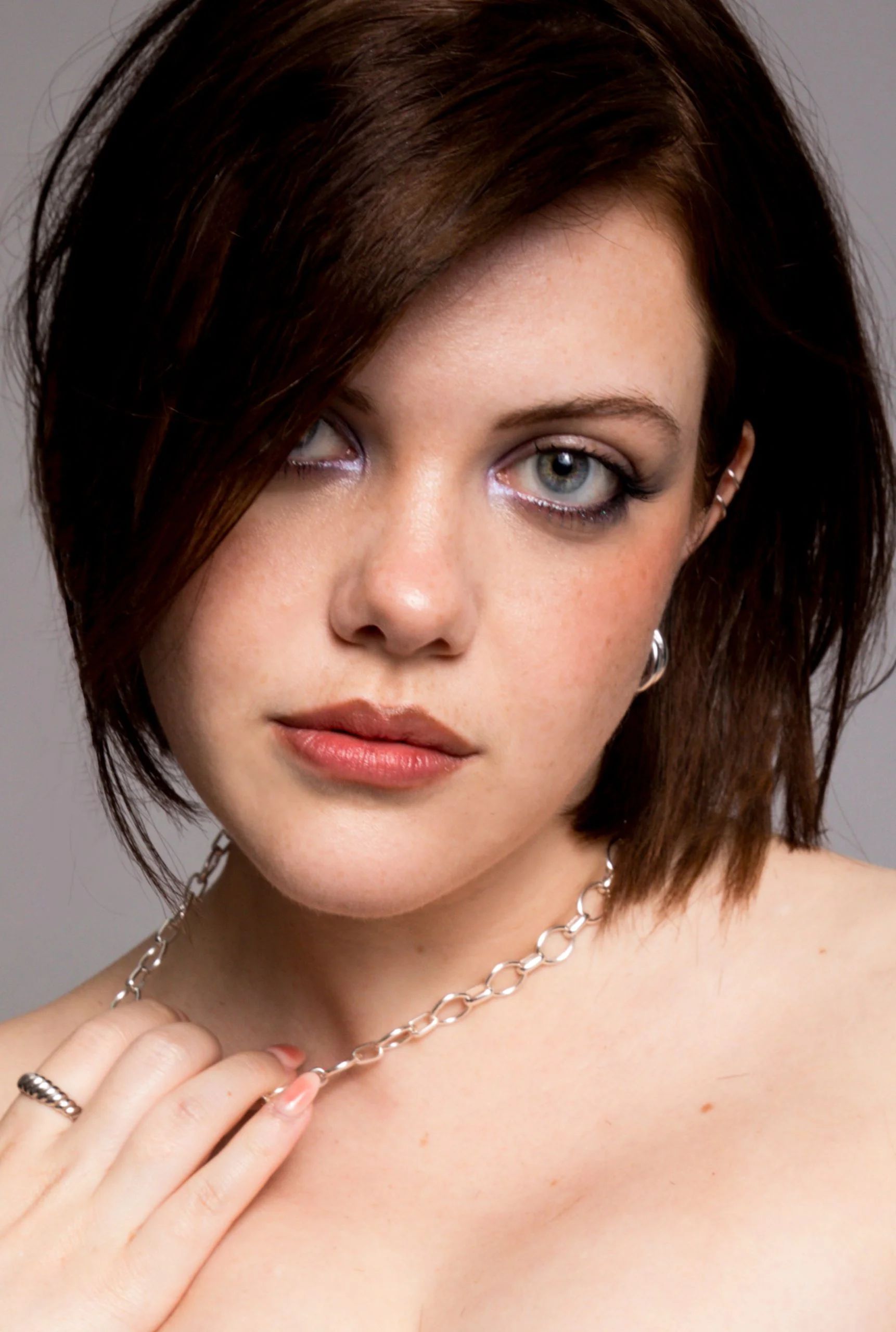
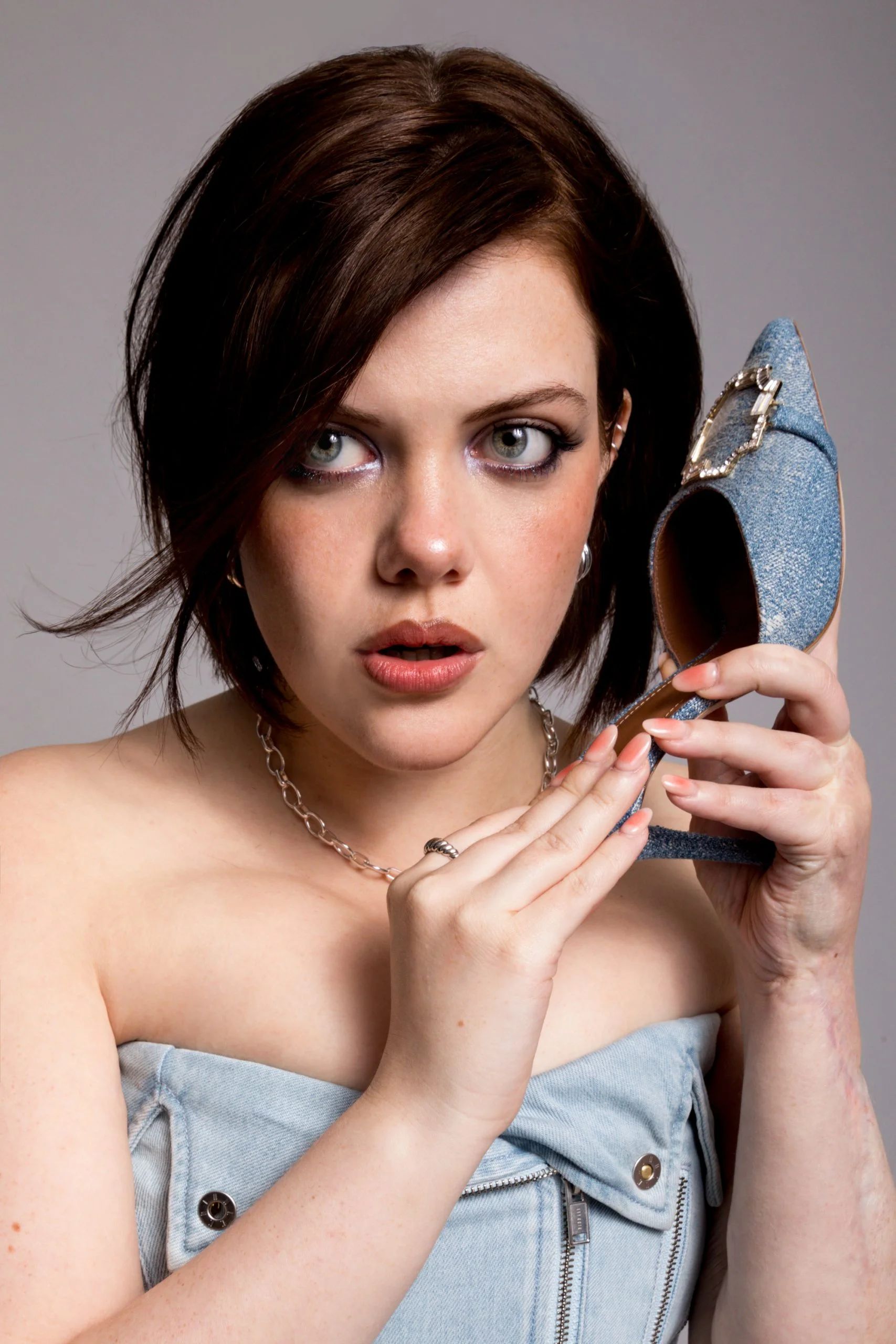
I found an old interview you did for 1883 for The Class Project—
Oh god! [Laughs]
You said “A lot of fans thought I had given up acting, but it’s better to be picky and choose the right roles.” I think that’s interesting — you were 16, 17 at the time and you were pretty determined to select the right roles.
It’s weird because now we seem to equate exposure with success. It’s about how visible can you be. I just feel really lucky that, honestly, everything I’ve done, I really stand behind and I really believe in. I know that there will probably be times in the future when I have to do something where that’s not the case, but I’m trying to put that off for as long as I can. I think it’s a lucky position to be in partly because I’ve been lucky enough to work with great people.
You also started at such a formative period and you needed time to figure out what you wanted.
I was getting offered stuff that was so similar to what I had just spent seven years doing. What is the point of just doing the same thing until people get sick of you? Everything I’ve done, I feel, has all been different in a certain way. I have never trained, so everything I know is just by doing it. It’s scary but it’s also like you’re a Boy Scout, collecting badges along the way.
Yeah, I’ve talked to actors and they call it a toolbox that you’re adding new things to.
Yes! With Partygate, it is so natural and they wanted it to feel like a documentary. That’s the kind of acting that I love watching on screen but it’s not something that I’m necessarily associated with being known for. I think I’m best known for fantasy movies which is this heightened genre. I have to say thank you to our amazing director Joseph Bullman for taking a chance on me even though he hadnt seen me do it before. That was a big risk on his part.
Aside from our politics, Grace Greenwood and I are similar in a lot of ways. Politics is such a huge part of person in the world that we live in now like, it colours, a lot of things in your life. I would say that there are elements of my existence and life that are just inherently political. Partygate was more me understanding what would push her to become a For me, she represented a group of people in the more who have started to become disenfranchised and started to feel like they’re being taken for granted. She obviously gets accepted into working at Number 10 and she finally feels like she’s gonna have her moment, but even amongst them she is still an outsider. Even when she is kind of at her peak of feeling most accepted, she’s not one of them.
For this, I got the audition and I really have like a lightbulb moment. Sometimes you get a feeling and it’s nonnegotiable — you have to be part of it. There’s definitely been times when I’ve had that feeling ad I haven’t got the job. But every time I have got a job, I’ve had that feeling. And then the audition itself was like 40 minutes long, which is amazing. You Never normally get that level of time in the room. We were talking and improvising and I came out thinking how I want to work with this director because that he’s the right guy for the job. It’s one thing having the concept and it’s a whole other thing to have a fusion of the concept.
I know you directed a short film a few years back, are you itching to do anything else?
It’s been one of those things where I’ve had stuff that I’ve written and it’s just been about pushing the big red button. There’s been a certain fear that has stopped me from doing that. This is the first year where I wanted to reach out to actors, I wanted to get a producer, and shoot this. I think a lot of that had to do with my own confidence. I do wish that I had maybe taken that leap a little earlier but I think it had to happen in the way that it happened. It’s interesting, because like it’s taken me a while to get here. I’m sure you feel the same being in the position you’re in, but as a director you almost have to have enough belief in it to keep everyone moving.
I totally get it.
It’s been hugely beneficial to sit on these eggs and let them marinate. I’m now in a place where I’m really excited by everything I’m writing. I was in a writer’s room last year, which was an incredible experience that came from someone taking a chance on me. The stuff that I learned during that experience was so incredible. I’m genuinely excited by the stuff I’m writing, which is half the battle! [Laughs] Don’t get me wrong, there are definitely times where I can think nothing I write is good.
Yes! I’m that type of writer too. It’s hard to navigate.
I’m similar. I will say that a lot of people who came into my life, we all respect each other so much in terms of that we are making. Having that respect within your inner circle knowing that you can share something and that people will be honest with you is an amazing feeling as well. I’m genuinely inspired by my friends and they make cool shit and it makes me want to make cool shit. I feel like, in some ways, I’m just getting started. I feel like I have so much in me.
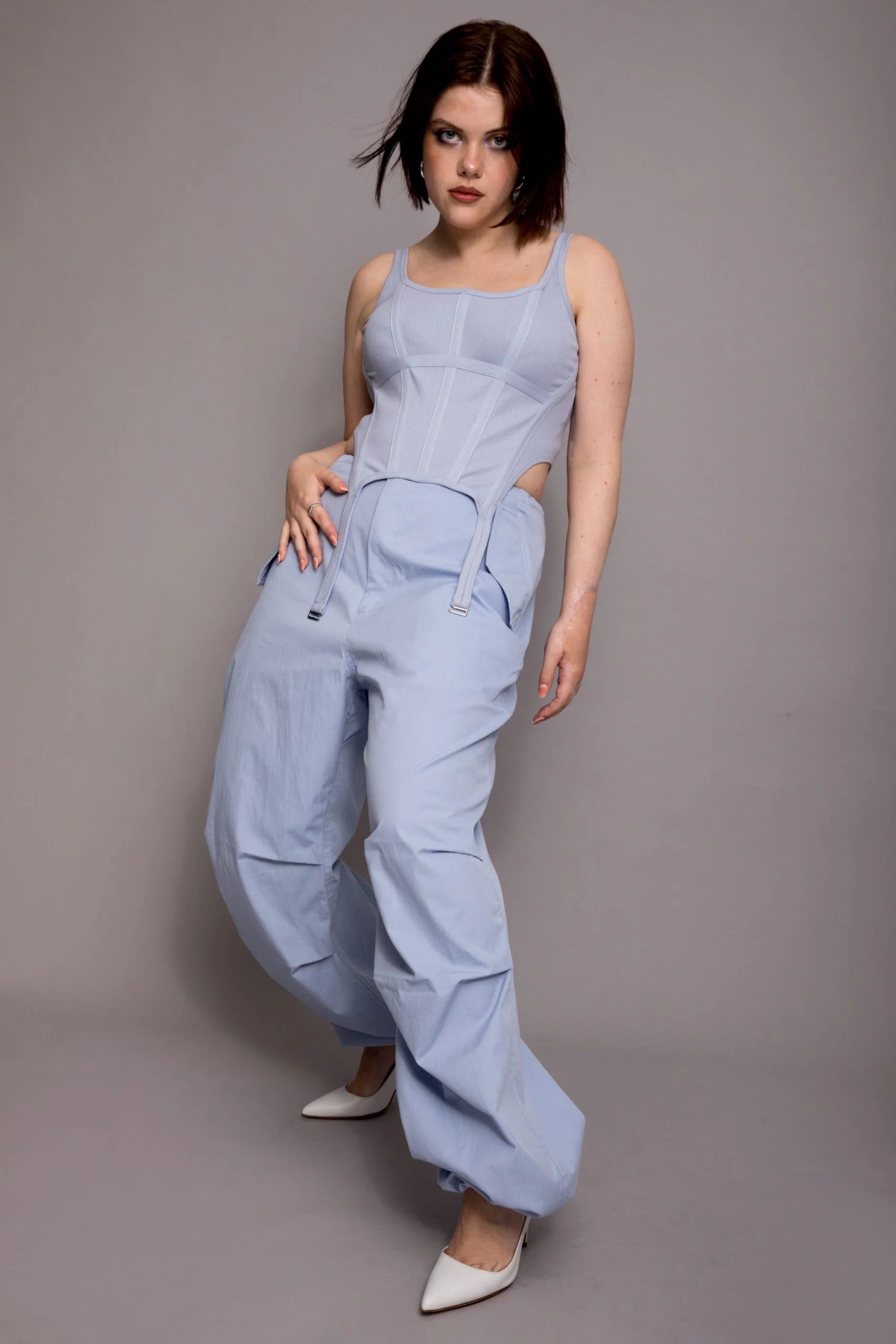
Is time a weird thing for you? I went to university late so I’ve always felt behind people, is that something you can relate to?
Time is a huge thing for me. My best friend Emma always laughs at me for it because everything always comes back to time with me. It’s part of being successful at a young age. I had a long time where people were praising me for seeming older than other kids but also you can’t get too gregarious with that feeling.
It reminds me of Millie Bobby Brown dealing with that at such a young age, too. Women get to a point of ‘overexposure’ in the public eye and people think, ‘we don’t like you actually.’ It just happened with Rachel Zegler too.
I’m so lucky that social media was not a thing when I was a child actor. Even if it had been a thing, I don’t think my parents would done it for me. I’m just so glad that that wasn’t around because you’re so much more visible and you’re vulnerable to people’s perceptions of you. Kids getting stylists and stuff is so funny to me because my mum and I would used to go to Zara and get all my stuff.
With time, I always felt like I’ve not done enough, especially after being ill. I felt like it massively derailed a certain period of my life. I had stuff planned and then it didn’t go to plan and having to readjust that. I think in the last couple of years, I’ve just realized it’s not to do with any kind of fake calendar. It’s more to do with wheter I’m proud and happy of the life I’m living and the stuff I’m making. It’s also become a huge topic of conversation around women directing because so often it’s something that they maybe come to later in life.
I was constantly told that I was like an old soul and I was very wise for my years. What am I now? Now I’m just trying to be a human. There’s actually this great quote that I love which I am probably going to paraphrase, but it’s “you have to chop, carve and hack your own path.” You have to cut through all the shit and just make it yourself. If you do that, then who cares when you’re doing it and how you’re doing it?
Exactly. The old soul comment made me think of the new Olivia Rodrigo album and she has a song where she talks about people saying she’s good for her age and she asks when is she just going to be “good.”
I think it’s really interesting about Olivia Rodrigo is that whole like thing on social media about being I’m too old to be listening to her. That’s actually partly because a lot of the time there’s a whole group of women in their late 20s, 30s, 40s that feel they haven’t been given voice in this way. What would I feel if this had been available to me as a teenager? I think that way about so much stuff now though because there’s so much — particularly with queer representation — that make me think, “Oh, I would have hated myself a lot less if that had been on TV when I was a kid.”
If you could experience one album, one film and one book for the first time this time? What would it be?
It’s such a great question. I think it would be Tapestry by Carole King. I love that album and I very much remember the first time my dad played it to me. This is maybe a bit of a left turn for the book but I think it might be Frankenstein by Mary Shelley. It cracked something open in me and it felt so modern. Fim is so hard, but I think Singing in the Rain because I just loved that movie so much. I remember watching it and thinking how they did what they did. I think it’s one of the best films about Hollywood.
Lastly, if you could manifest something for yourself over the next year, what would it be?
Oh gosh, that’s hard! This gives you an idea of how rarely I look ahead. I think you learn it’s not good to constantly be looking ahead. I will say I have a few friends who are going through stuff at the moment and I want their lives to be easier. I’d wish that for them. That would be perfect.
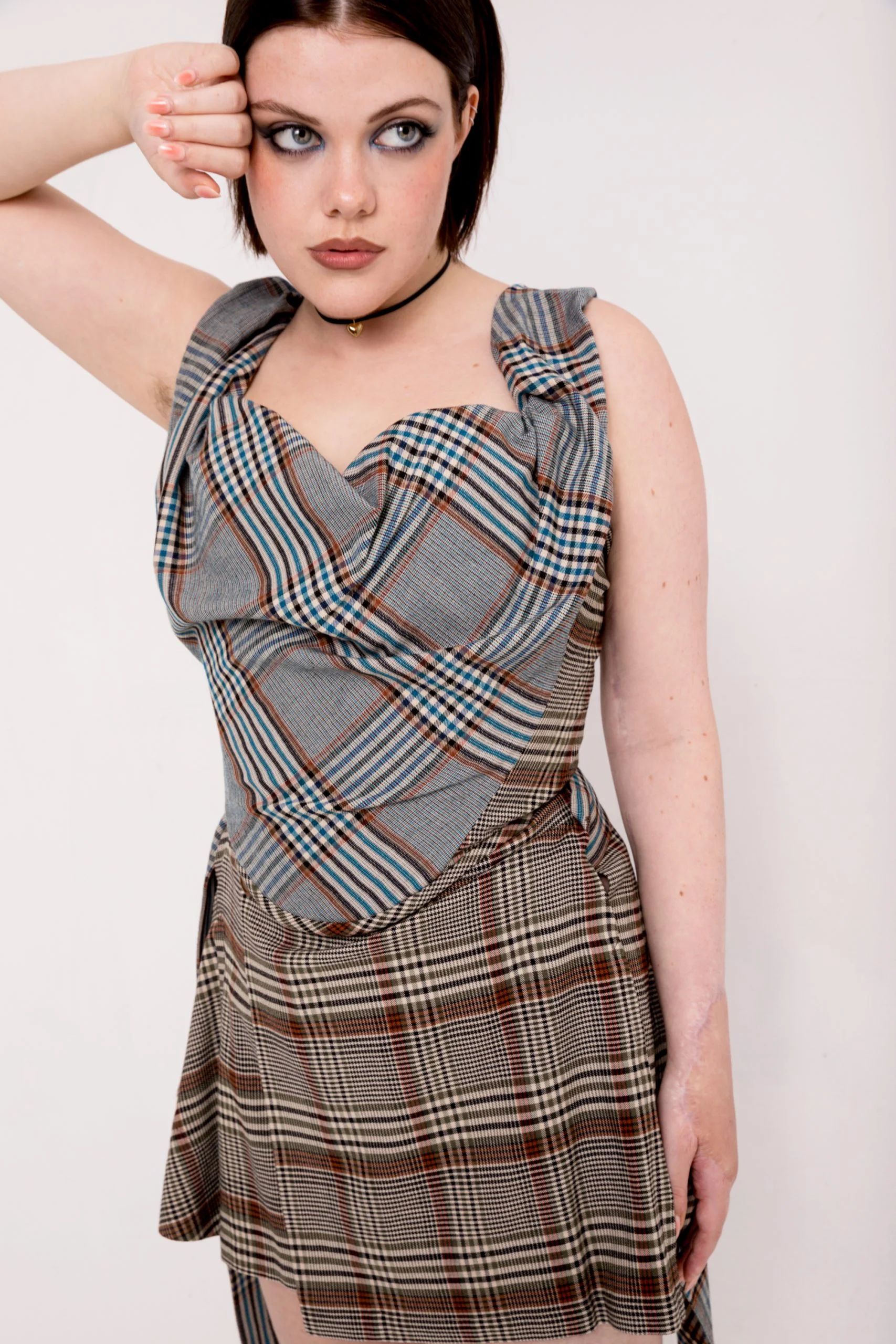
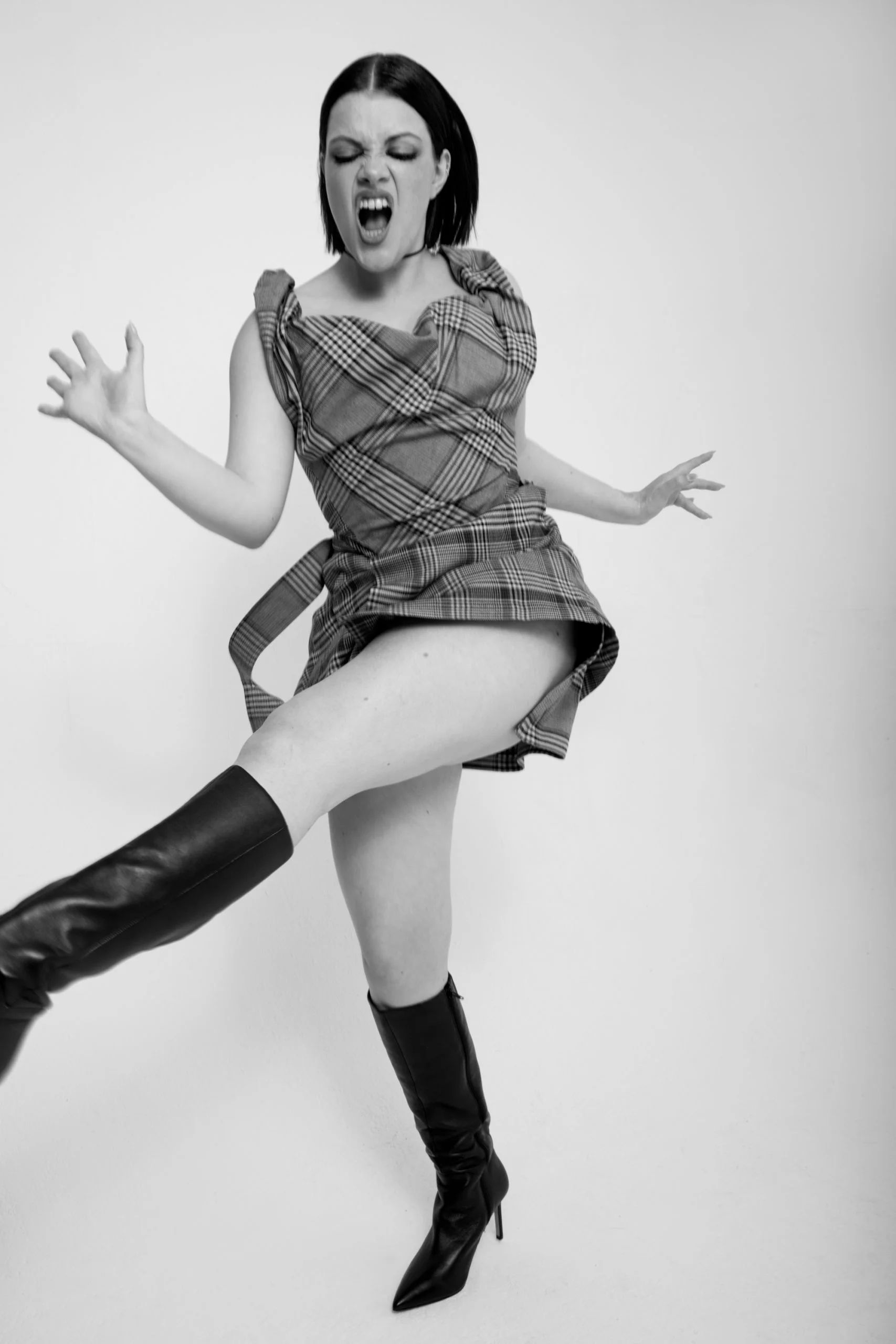
Partygate is available to stream now on More4.
Interview Kelsey Barnes
Photography Jemima Marriott
Styling Rachael Perry at Stella Creative Artists
Hair Jon Chapman at Carol Hayes Management
Make-up Maya Man at Stella Creative Artists using Fenty Beauty
Photography Assistant Leelou Reboh
Styling assistants Annabelle Field & Sorcha O’Brien



